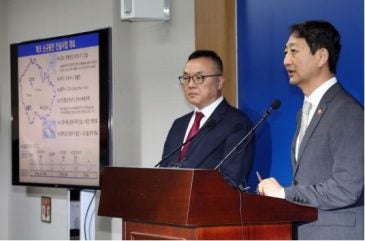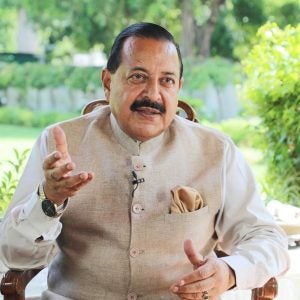
The heads of Korea’s major corporations will accompany President Yoon Suk Yeol during his visit to the Czech Republic in September as the administration works to finalise a KRW24,000bn ($18.1bn) nuclear deal.
In July, a South Korean consortium led by the state-run Korea Hydro & Nuclear Power (KHNP) was selected as the preferred bidder for the construction of up to four NPP units in the Czech Republic. The other contender was France’s EDF. US-based Westinghouse Electric had been excluded from the tender in January, because it “did not meet the necessary conditions”.
However, Korea continues to face an intellectual property conflict with Westinghouse Electric, which is taking legal action to prevent the export of Korea’s nuclear technology.
Their legal battle began in October 2022 when Westinghouse filed a lawsuit against the KHNP and the Korea Electric Power Corp. (Kepco) claiming that Korea’s nuclear technology incorporates Westinghouse technology. KHNP and Kepco, however, insist that while Korea did receive assistance from Westinghouse in the early stages of reactor development, the APR1400 planned for the Czech Republic is an independently developed model and thus not subject to US export controls
Industry Minister Ahn Duk-geun, Kepco CEO Kim Dong-cheol and KHNP CEO Whang Joo-ho visited the United States earlier in August for discussions with Westinghouse executives. The result of talks has not been disclosed, but local media outlets reported that they did not go well.
KHNP has reportedly engaged directly with Westinghouse in the United States to persuade them towards an “amicable resolution” of their intellectual property dispute. KHNP has proposed that the two companies pursue joint entry into third-country markets based on an “amicable resolution” of their dispute.
This visit coincided with the US-Korea Energy Ministers’ Meeting in which Minister of Trade, Industry & Energy Ahn Duk-geun met with US. Secretary of Energy Jennifer Granholm to discuss ways to strengthen cooperation in the field of clean energy, including nuclear power.
During the meeting, the Korean side reportedly emphasised the need to strengthen US-Korea cooperation in the field of nuclear power plant exports to third countries. In an interview with Yonhap News Agency in July, Ahn stated, “We have been strengthening the nuclear cooperation framework with the United States, and we are making efforts at the government level to play a role as ‘Team KORUS’ in the global nuclear industry,” adding, “We expect Team KORUS to play a leading role in expanding the global nuclear market.”
The government and KHNP plan to continue dialogues from various angles to derive a mutually beneficial “amicable agreement,” given that there is still considerable time left until the formal contract deadline for the Czech nuclear power plant in March next year, Business Korea reported. A government official stated, “The government cannot force a compromise between companies, but we are supporting it to ensure that a compromise can be reached and expect it to be concluded well,” adding, “There are no disagreements between the US and Korean governments in the field of nuclear and energy cooperation.”
The Chosun Ilbo said it had analysed the background of the Westinghouse situation based on “expert insights”. It noted that Westinghouse’s largest shareholder is Brookfield Business Partners, a subsidiary of Canada’s private equity firm Brookfield Asset Management. Brookfield became the major stakeholder after acquiring the struggling company in 2018. In 2022, Brookfield sold 49% of its shares to the Canadian uranium company Cameco but retained a 51% majority stake.
According to The Chosun, the ongoing dispute between Westinghouse and KHNP since the late 2010s is largely attributed to recent changes in Westinghouse’s ownership structure. An industry insider said, “Westinghouse and South Korea have had strong technical ties and collaboration since the 1970s. But with a private equity fund now the largest shareholder, there is increased pressure to raise technology infringement issues against South Korea.”
“There is also speculation that Westinghouse is increasing its pressure due to South Korea’s repeated success in winning nuclear contracts. While Westinghouse is still lauded for its advanced core technology, its capacity to supply new nuclear plants has greatly diminished after a 30-year pause in domestic construction since 1979,” The Chosun noted.
At its peak in the late 1970s, Westinghouse employed about 55,000 people, but this number has now dwindled to less than one-sixth, with only around 9,000 employees remaining. The company’s core business areas have also been reduced to operations and management. Professor Moon Joo-hyun of Dankook University noted, “While KHNP can comprehensively manage costs and timelines, Westinghouse lacks these capabilities,” adding, “The aging of its technical workforce has also heightened its sense of crisis.”
Westinghouse’s aggressive stance appears to be a strategic move to counter South Korea’s expansion into emerging nuclear markets, such as the Middle East and Europe, with the global nuclear facility market expected to double by 2050, Chosun said.






